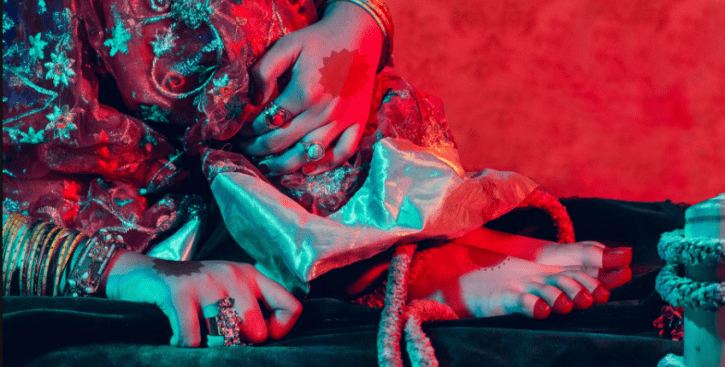In the narrow alleyways of Pakistan’s villages and towns, behind closed doors and muffled cries, unfolds a heartbreaking saga of silence. It is the story of women like Shahida Bibi—fragile, unseen, and unheard—whose lives have been shaped not by choice, but by coercion, cruelty, and a society that continues to look away.
Shahida’s journey began in tragedy. At just 11 years old, she was abandoned by her mother, who left to marry a Muslim man, seeking security in a world that offered little to impoverished Christian women. Shahida, a child robbed of her mother’s love, was handed over to a stranger—her step-uncle—who soon became her captor. Her cries for her father were swallowed by the walls that caged her, and at 18, still a teenager, she was forcibly married to the very man who had controlled her life. With that, she was coerced into converting to Islam, beginning a 13-year-long ordeal of emotional torment and physical abuse.
Her eventual escape, clutching her child and running back to the remnants of her old life, was not a victory. It was a return to a world that had already abandoned her once.
But Shahida is not alone.
Thousands of Christian girls and women across Pakistan share this painful fate. Vulnerable due to poverty, illiteracy, and social status, many are groomed, manipulated, or outright kidnapped, only to be forcibly married to Muslim men. Their conversions are neither spiritual nor consensual—they are demanded, expected, and enforced. Families, driven by desperation, sometimes even encourage these unions, clinging to the illusion of stability, safety, or social acceptance. The reality, however, is heartbreakingly different.
According to the Voice of Pakistan Minority, nearly 1,000 Christian and Hindu girls are abducted and forced to convert and marry every year. These numbers are more than statistics—they represent lives torn apart, identities erased, and childhoods stolen. In most of these cases, justice remains elusive, and silence is mistaken for consent.
The trauma these women endure is layered. The moment they are converted and married, they are often severed from their Christian roots. Their communities, devastated by betrayal and grief, distance themselves. But within their new Muslim households, they are rarely embraced. Instead, many face suspicion, alienation, and abuse. They become strangers in both worlds, their identities fragmented by faith, fear, and force.
Human rights activists have long condemned this systemic abuse, but their voices are often drowned out in the din of denial and religious politics. Legal protections for minority women in Pakistan remain alarmingly weak. Proposed legislation to criminalize forced conversions has been met with fierce resistance from religious hardliners, and enforcement of existing child marriage and abduction laws is dismal.
What’s most tragic is how normalized this abuse has become. For the outside world, these stories seem distant, even surreal. But for the women living them, it is a daily struggle—a fight for dignity, for safety, and for the right to simply exist on their terms.
And yet, there is resilience.
There are brave souls like Shahida who, against all odds, find the strength to escape, to speak, and to rebuild. Organizations are working tirelessly to offer shelter, legal aid, and emotional support. There are fathers, brothers, and sisters who search relentlessly for their stolen daughters. And there is a growing chorus—both inside and outside Pakistan—demanding change.
The plight of Christian women in Pakistan is not just a gender issue, nor solely a religious one. It is a human rights crisis. It calls into question our global commitment to freedom of belief, the safety of women, and justice for the most vulnerable among us.
Shahida Bibi’s story is not an isolated tragedy—it is a mirror of a deeper, darker reality. And until every woman can live without fear of being stripped of her faith, her name, and her rights, the fight must go on.
Because silence, in the face of such suffering, is complicity.
